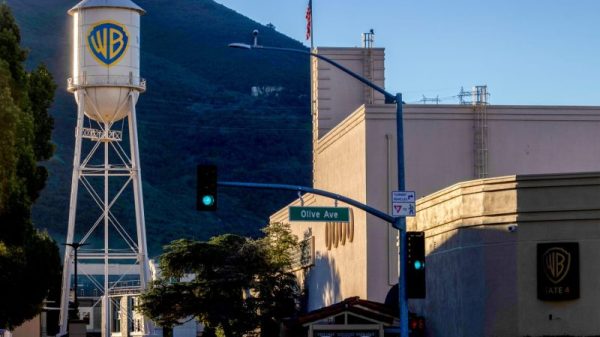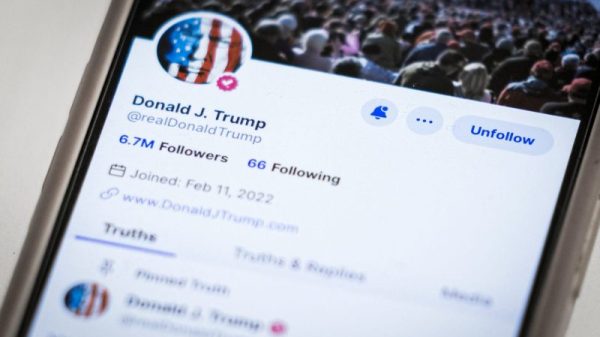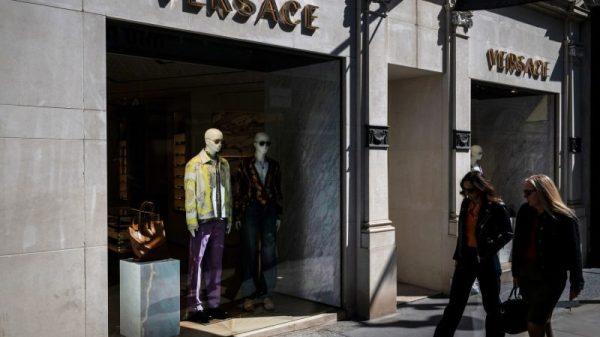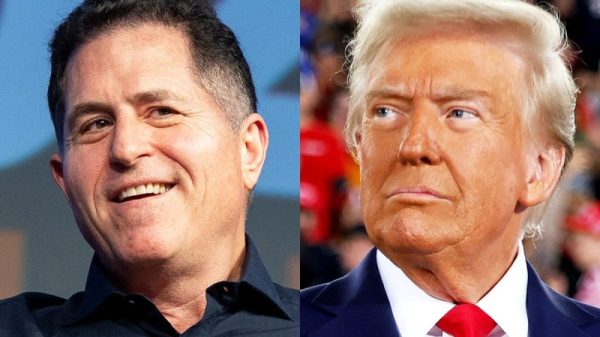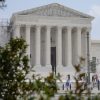One after another, potential jurors told a judge they donated to Planned Parenthood. They shared how they attended historic abortion rights protests and marches in the nation’s capital. Others said abortion is akin to killing a person, citing their religious beliefs.
This was the reality playing out in a federal courtroom as jury selection heads into a fourth day Monday for a trial that focuses on the blockade of an abortion clinic in the District by a group of antiabortion protesters in 2020. The trial, which is expected to last three weeks in U.S. District Court in Washington, will center on access to abortion and whether those on trial violated the Freedom of Access to Clinic Entrances Act, a 1994 law that prohibits threats to and obstruction of a person seeking reproductive health services or providers.
More than a year after the Supreme Court overturned the fundamental right to abortion established in Roe v. Wade, it became clear in this federal courtroom how difficult it is to find jurors who say they can put strong feelings on abortion aside and fairly evaluate a case. Jury selection has also been further complicated after the lead defendant made news last year for obtaining fetuses from the driver of a medical waste disposal truck in D.C. — an account the waste company denied — and storing them in a Capitol Hill rowhome. Jury selection started Wednesday and once a jury is selected, prosecutors and defense attorneys will make their opening statements.
It was so tense in the courtroom at times that a defense attorney alleged a potential juror got into a screaming match with antiabortion activists outside the courthouse. An antiabortion supporter allegedly distributed leaflets outside the courthouse that the judge said was meant to influence the jury. Another defense attorney unsuccessfully argued that working for a Democratic congresswoman would disqualify a juror and a potential juror said she had negative opinions of the lead defendant from reading previous media coverage.
Abortion access by state
End of carousel
During the trial, jurors will also hear from clinic employees, and patients who had appointments at the clinic the day of the blockade as part of the prosecution’s case, according to court records. A nurse was injured and patients were traumatized, records show.
“It is not about abortion itself,” U.S. District Court Judge Colleen Kollar-Kotelly emphasized during jury selection. “It’s about access.”
Polling from this month shows only 16 percent of U.S. adults do not see abortion as a major issue, a record low in CNN polling dating back to 1996. Among the majority of U.S. adults who disapprove of the overturning of Roe, 78 percent say federal politicians are not doing enough to ensure access to abortion.
Congress passed the FACE act as a reaction to increasing blockades at health clinics providing abortion, as well as violence toward those clinics, providers and patients. In 1993, David Gunn was fatally shot outside his Florida abortion clinic in what was believed to be the first time in the nation that an abortion provider was killed in protest.
During the Trump Administration, the FACE Act was “largely ignored,” said Mary Ziegler, a legal historian of the antiabortion movement at the University of California at Davis. But now, Attorney General Merrick Garland has vowed to use it to protect the right to access clinics that provide abortions.
A successful prosecution of the FACE Act may deter protesters from taking more extreme measures. In this case, the defendants each face a maximum sentence of 11 years in prison, three years of supervised release and a fine of up to $350,000 if convicted.
“Dobbs is the law, Roe is gone, and yet there’s still no nationwide ban on abortion … that impulse to take the law into one’s own hands may be strong right now,” Ziegler said.
Prosecutors allege the defendants — including Lauren Handy, John Hinshaw, Heather Idoni, William Goodman and Herb Geraghty — violated the law when they allegedly used chain and rope in October 2020 to blockade the Washington Surgi-Clinic. The trial against other defendants facing charges from the same blockade will begin at a later date.
The case gained additional notoriety when, the same day a federal indictment was announced against the defendants, D.C. police discovered five fetuses in a Capitol Hill rowhouse basement where Handy had been staying. The criminal trial, however, has nothing to do with the fetuses antiabortion activists say they collected from outside the same D.C. abortion clinic and authorities have not charged anyone in that matter.
Several potential jurors, however, said they recalled reading about the discovery. Kollar-Kotelly made clear to those jurors that the fetuses will not be part of this case.
Still, some potential jurors said they would be swayed. One potential juror who recalled that news story said Thursday that he thought the idea of storing fetuses was “wacko.”
When asked if he could push that information aside to independently hear this case, the potential juror replied: “It would be difficult to go past that.” He was excused.
It also became clear as the trial began that activism around abortion had the potential to affect jury selection.
“This is a trial of the decade of the pro-life movement,” Caroline Smith, executive director of Progressive Anti-Abortion Uprising, an antiabortion group that lists Handy as its activism director, said at a news conference outside the courthouse on Wednesday.
Geraghty, another defendant, stood in front of a bright yellow poster demanding “JUSTICE” for the fetuses found in the Capitol Hill rowhome and another poster declaring “STOP INFANTICIDE.” Geraghty acknowledged the long prison sentence they could face if convicted, but said the group will not be deterred from their mission.
“This is scary,” Geraghty said, later adding: “We will not stop fighting. We will not stop rescuing, and we will not stop working for justice.”
Meanwhile, outside another entrance to the courthouse, an antiabortion advocate allegedly handed out antiabortion fliers labeling the defendants “Pro-life heroes.” It called the FACE Act a “wicked law” and criticized Judge Kollar-Kotelly by name.
Upon hearing about this antiabortion flier, and its contents, Kollar-Kotelly told the defense on Wednesday she was putting them “on notice.” She later said the literature was clearly intended to influence jurors. Handy, the lead defendant, said these were not fliers from her, or her organization, and she did not know who was distributing them.
Another potential juror who has donated to abortion clinics in South Florida and marched in front of the Supreme Court after the Dobbs decision said he would be able to put his views aside and listen to the arguments as presented in court.
“I have family members who disapprove of abortion,” he said. “They’re still my family.”
“I think it’s close,” Kollar-Kotelly said, “but I’m going to leave him in.”











